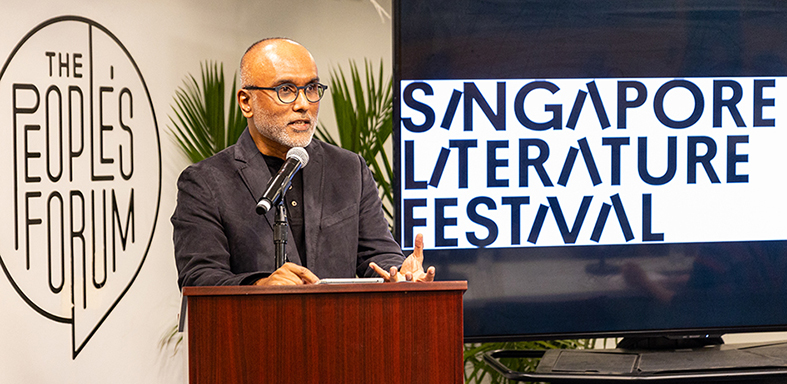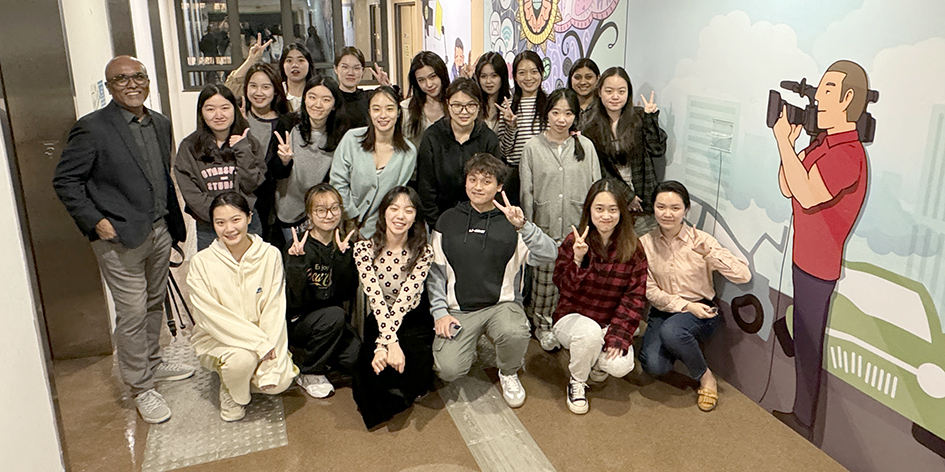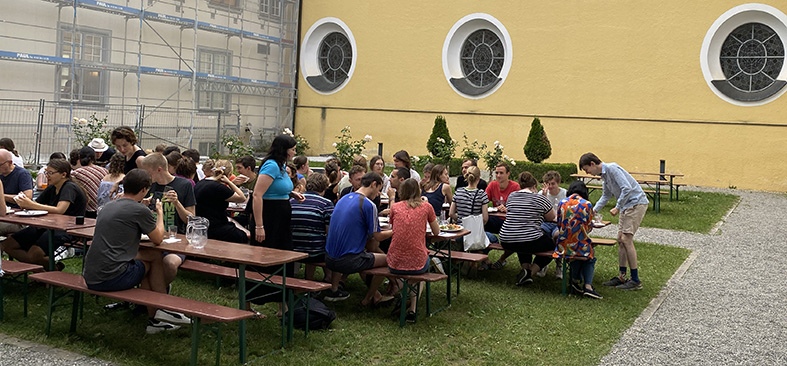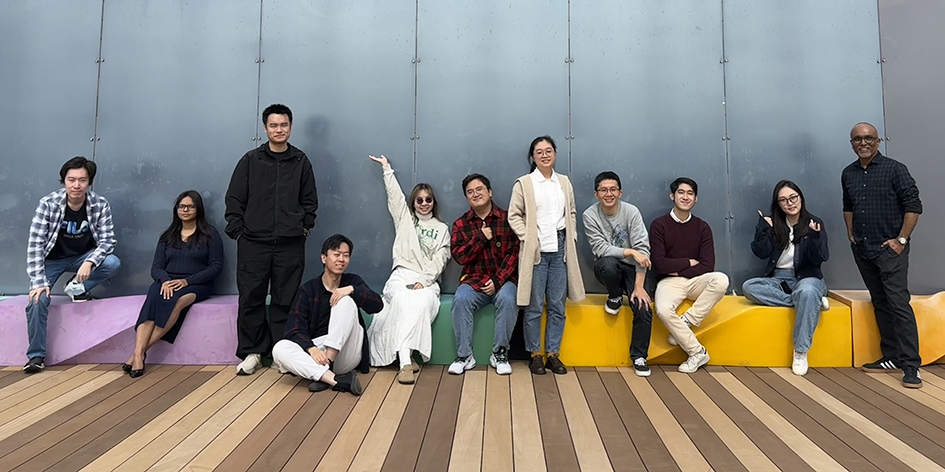Giant Taro (alocasia macrorrhizo) at home in Singapore, July 2025.
I am a professor of media and politics based in Hong Kong. My scholarship and public engagement focus on communication challenges associated with collective life in diverse societies. My approach is globally comparative and inter-disciplinary. I have a special interest in hate propaganda and polarisation; media freedom and censorship; and academic freedom including research colonialism. I am a Singaporean, and also write about authoritarian resilience in Singapore.
RECENT OPINION PIECES
- A better model for campus dialogue: The killing of Charlie Kirk highlights the need for universities to foster counter-polarizing dialogue, not commodified debates. In Inside Higher Ed.
- How to fight polarization: The world increasingly appears afflicted by “us-them” divides that breed anger, resentment, and violence. But across the globe small local groups are mounting a thoughtful resistance against polarization and hate. In Journal of Democracy.
- Why India’s war should not be Singapore’s: An on-going Indian diplomatic offensive aims to rally international support for its chosen strategy to combat terrorism. Singapore’s approach to counter-terrorism differs from India’s and must remain so. In AcademiaSG.
- Building a democratic society – A role for many helping hands: Singaporeans need to pay attention to politics in between elections and do their part to build a democratic society. In AcademiaSG.
Hate and Polarisation

My latest book, Fighting Polarisation: Shared Communicative Spaces in Divided Democracies (Polity Books), studies projects around the world trying to transcend “us-them” divides through innovative media and communication processes that connect communities and construct more inclusive publics in divided societies. It has been released in the UK and will be available elsewhere soon. Details here.
BOOK TALKS
- 12 February 2026 – Book talk in Hong Kong, at the Hong Kong Baptist University.
- 22 November 2025 – Singapore launch, organised by the Dialogue Centre in collaboration with the Centre for the Study of Social Inequality.
- 18 November 2025 – Podcast. In coversation with Azza Karam of Lead Integrity, New York. (Video below)
- 14 November 2025 — Keynote speech at the Annual Conference of the International and Intercultural Communication Division of the German Communication Association: “Rethinking the Resistance: Responding to Hate and Polarisation”, Erfurt, Germany. Details.
Also see:
- “How to fight polarization”– Journal of Democracy
- “A Better Model for Campus Dialogue” – Inside Higher Ed
Covering Hate Speech: A Guide for Journalists is a commissioned report published by UNESCO for use in media training and development work. In it, I argue for a new approach to covering hate, based on professional journalism’s traditional strengths and codes of ethical practice. Instead of getting carried away by the latest hate speech controversy, media should apply its investigative skills to reveal who benefits from long-term hate propaganda and how it operates. The publication can be downloaded from UNESCO’s library here.

Hate speech regulation in Asia. I am writing a chapter on this topic for the Oxford Handbook of Hate Speech, edited by Eric Heinze, Tom Herrenberg et. al. I will show how, in the absence of strong equality protections, hate speech laws in many Asian jurisdictions end up being abused by dominant groups to sharpen oppression of vulnerable communities.
More of my work on hate propaganda can be found on this page and my list of publications.
Media freedom and censorship

Red Lines: Political Cartoons and the Struggle against Censorship is a global study of 21st century censorship as experienced by political cartoonists around the world. It is rendered entirely in graphic form, in collaboration with comic book artist Sonny Liew. Visit our website.
MIT Press has made these excerpts freely accessible: “An Illustrated Guide to Post-Orwellian Censorship” and the story of Jewish American cartoonist Eli Valley’s battles with pro-Zionist forces in the United States.

Red Lines was honoured as one of the top three books in two categories — Media & Cultural Studies and Graphic Nonfiction — by the Association of American Publishers PROSE Awards for scholarly works published in 2021.
Other recent works
- Performative censorship: Why some free speech conflicts should be taken seriously but not literally, Media, Culture & Society, 2024.
- “Cartoons”, to be published in the Encyclopedia of Political Communication, edited by A. Nai, M. Grömping & D Wirz (Edward Elgar). Accepted manuscript available at SSRN.
- My opening keynote speech at the 2023 Journalism Education and Research Association of Australia annual conference looked at “Blind spots and biases in media freedom advocacy”.
Artistic freedom
Above is a podcast about artistic freedom by Arts Equator SEA, in which I discussed my ideas about modern-day authoritarian controls on expression, which work as much through co-optation as through coercion. This was also the subject of a 2020 talk I gave on artistic expression in Singapore.
Academic freedom
Mainly as part of the collective AcademiaSG, I have been writing and speaking about academic freedom in Singapore.
- AcademiaSG submission to the UN Special Rapporteur on the right to education, cited in her report to the UN Human Rights Council session of June-July 2024.
- I recount my own experience in Singapore and subsequent developments in the country in “From scandal to business as usual: normalising controls over academia”, an essay in AcademiaSG series, Occupational Hazards.
- More reports, including our survey of Singapore-based academics, here.
- My May 2024 talk at the AcamediaSG Knowledge Praxis conference, on how bibliometrics undermine local scholarship, can be viewed here.

“The tyranny of university rankings and bibliometrics”, a presentation at AcademiSG’s May 2024 Knowledge Praxis Conference.
Global diversity in media studies: Read the text of my talk on this subject at the International Communication Association 2022 conference, and a blog analysing the field’s top-ranked journals.
Singapore

General Election 2025
My post-election interview with Ya Lah BUT. More videos on my Singapore Politics YouTube playlist.
Commentaries
- Breaking the start-stop cycle of Singapore’s democratic progress
- Two Stories, One Vote: The Nine Days That Shaped GE2025

I spoke at the Institute of Policy Studies conference in Singapore on 20 January 2025. The full text can be read here.

In October 2022, I gave the closing talk at the 5th Singapore Literary Festival in New York City. This biennial event is organised by Singapore Unbound.
Selected commentaries
Singapore’s unique, troubled Presidency. Constitutional law academic Kevin Tan and I explain why Singapore’s directly elected Presidency is a flawed institution. Read the article.
Historyogi Podcast: The history & effects of Singapore’s media regulation policies.
World Press Freedom Day: Outnumbered and outgunned, public-interest journalism is losing to identity politics. Current media systems have no answer for toxic polarisation. A public service internet and public service media need to be on the agenda. My commentary for 360info.org.
Singapore’s media system overhaul: Singapore’s news media giant SPH will go non-profit, marking the end of the PAP government’s neoliberal approach to suppressing the press. It will use public funds instead. Read my commentary.
Ukraine and big power rivalry – Why the urge to ‘compare rottenness’ will lead Singapore nowhere: Chong Ja Ian, Walid Jumblatt Abdullah and I probe the tendency among some Singaporeans to treat the crisis in Ukraine as an occasion to assert their values and allegiances in an identity war between the West and the Rest. Read our commentary.
Race and the PAP: A chapter from PAP v PAP on the what needs to change in Singapore’s management of cultural diversity.
A call for clean online campaigning: Singapore’s online falsehoods law fails to regulate social media manipulation by the ruling party. Read this call for more transparency by a multidisciplinary team of experts.
More commentaries on Singapore can be found in my Air-Conditioned Nation blog and the AcademiaSG website.
Teaching


At HKBU, I teach undergraduate and masters courses on journalism and society, plus a PhD course on freedom of expression and censorship. In 2023, I taught a media/politics course for Germany’s Studienstiftung summer academy. I led the Media, Culture and Society intro course for Stanford’s Department of Communication in the Fall of 2022. My PhD students work on topics in the broad area of media and politics.

Gallery
Stay in touch
My other sites




